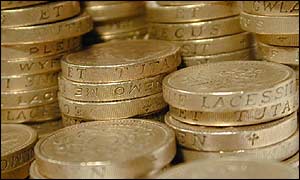Halal certification for food can, at times, be something of a rort. There is well-known principle in fiqh (jurisprudence) that states that the ‘asl (basis) of all things outside of matters of worship is that they are permissible. In other words, the starting assumption when faced with these issues is that they are allowed. This has, to some extent and at various times, been inverted by some of the commercial organisations offering halal certification.
Of course, this is hardly surprising given there is a strong incentive for such companies to, firstly, convince manufacturers that unless they are explicitly certified as halal, there products will be forbidden to Muslims; and, secondly, the legitimacy of their certification depends, to some extent, on Muslims themselves believing that such products are forbidden to them. A more efficient alternative might be to teach Muslims enough of the rules of fiqh in order to be able to assess most products for themselves.
In any case, as Muslim communities develop there is one area where Muslims could also do with halal certification: finance. Like food products, there are many financial products on offer in the market — different types of insurance, leasing structures, managed funds, etc. — but very little information on what is and what is not permissible. I have noticed that there are a number of broad assumptions about the impermissibility of particular types of transaction and product without any detailed understanding or analysis. However, it is quite possible that there are many products and transactions we consider, by default, to be haram but are actually permissible or permissible with some conditions.
For example, there is a blanket assumption that insurance is forbidden as it involves gharar (extreme uncertainty), is a form of gambling, etc. However, some Australian insurance companies such as AAMI and GIO offer a product whereby a person pays a premium and, in the event of an accident, the customer drops the vehicle off at the depot and they (the insurance company) do everything required to fix the vehicle and return it back to the customer. The actual repairs are carried out by a subcontractor and the customer never receives a cash payment; instead being provided with a service. This transaction is therefore fundamentally different to the popular understanding of insurance. Is it also haram? And what about health insurance in which the insurer subcontracts a hospital to ‘repair’ the insured?
It is surprising that our religious leaders, imams and scholars seem not to have looked at these sorts of questions despite Muslims having been in this country for many decades. Therefore, I believe that there is a significant opportunity and need for organisations to be established — similar to the halal certification bodies used with food products — that look at the various financial products, assess them and issue certifications to the providers.
Finance companies could provide the certification body with a description of their product for assessment. The certifier would examine it, present it to their shariah board, and, if it passes, publish their findings on a website and/or in a journal alongside the company’s own description. The company would pay a fee entitling them to use a particular trademark and would sign a contract promising to notify the certifier of any changes to the product and agreeing that the description provided is a fair and accurate representation of how the product actually works. This would, I believe, be attractive to a company because it requries little from them except to provide documentation such as a product disclosure statement and yet the potential benefits of reaching a hitherto unreached market may be quite significant.
The perceived absence of halal alternatives to many increasingly important financial products in this society is and will continue to be an impediment for many Muslim’s economic development. For example, all Australians are required to pay money into superannuation yet, to the best of my knowledge, nobody has assessed the various funds to determine which ones are the most appropriate for Muslims to use. It takes a lot of money, time and skill to develop new products and the organisations to deliver them. Perhaps, it makes more sense for us to look initially at the products already on offer in the market first and assess these.
I would be interested in hearing what people think about the idea of halal certification applied to financial products. Has this been attempted anywhere in the West? If so, how has it worked/failed?

